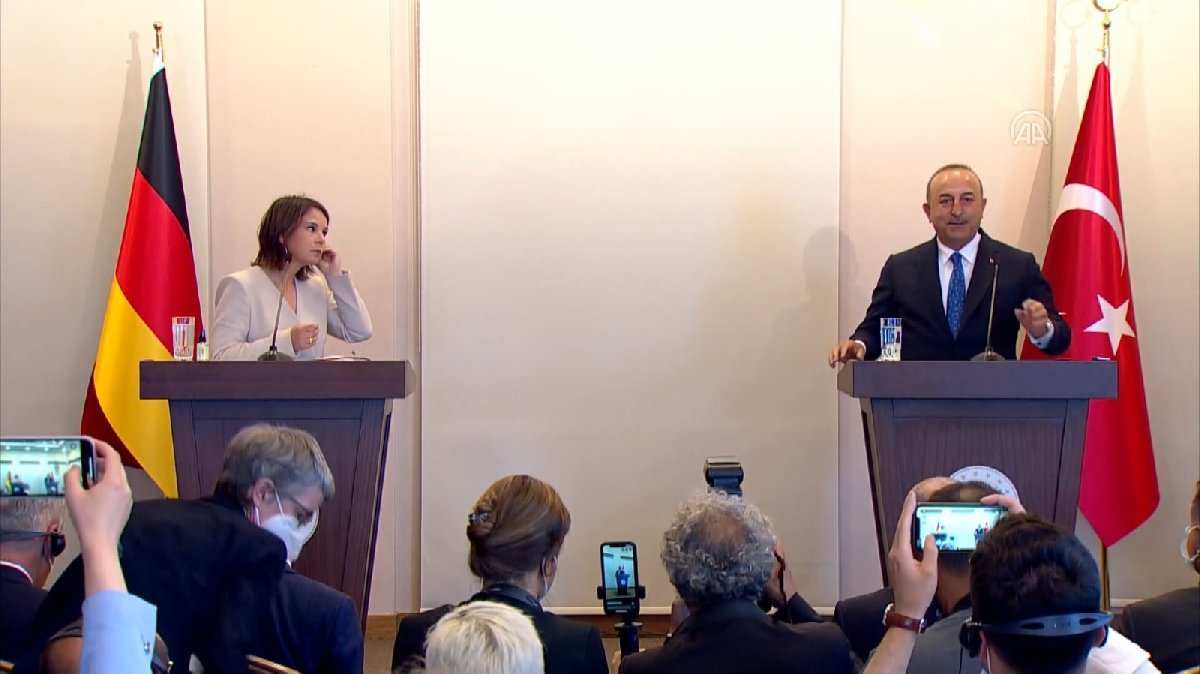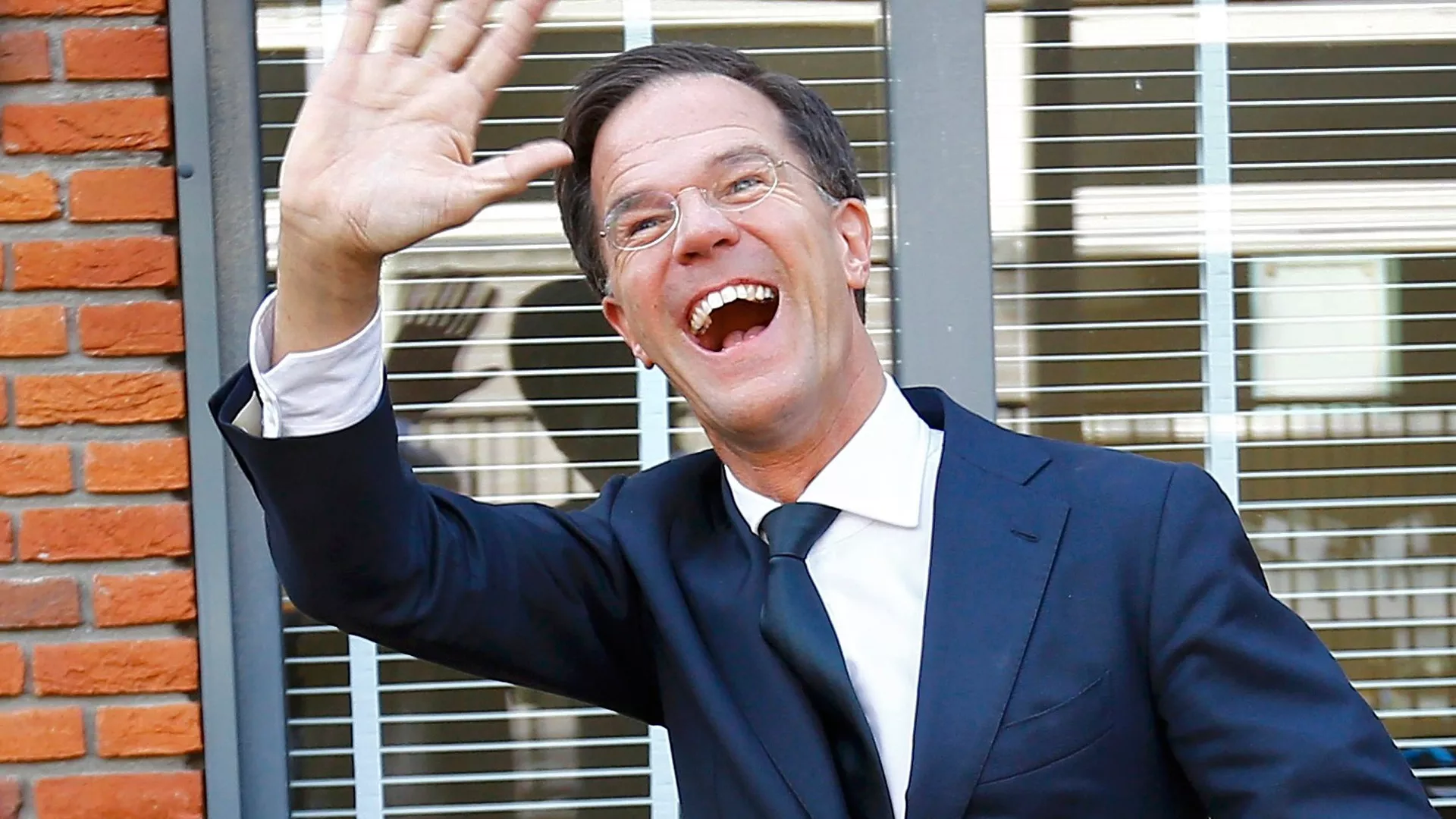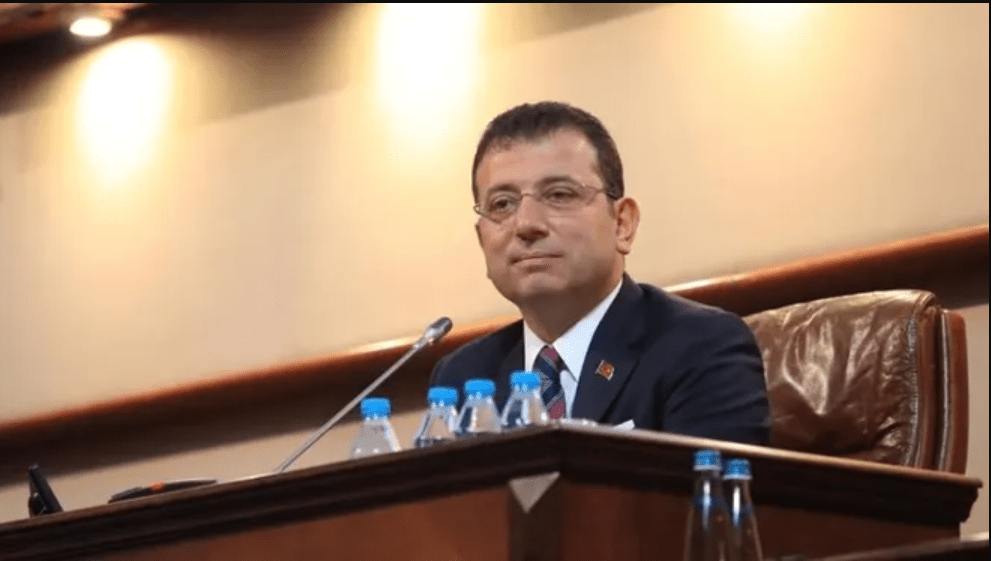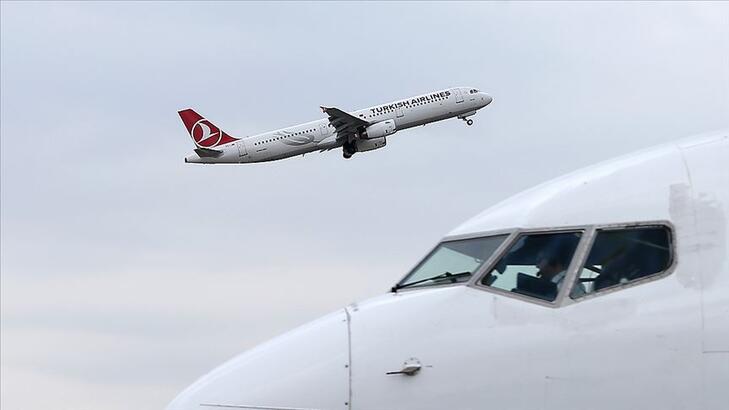Foreign Minister Baerbock is on a visit to Istanbul, and things are not harmonious at a meeting with her counterpart. Because the Green politician repeatedly criticizes Turkey, Cavusoglu fires back fiercely. Among other things, he accuses Germany of financing the imprisoned cultural promoter Kavala.
During the inaugural visit of Foreign Minister Annalena Baerbock to Turkey, it has come to open confrontation with her Turkish counterpart Mevlüt Cavusoglu. At their joint press conference in Istanbul, the two exchanged words on the expected Turkish offensive in northern Syria, the detention of opposition figure Osman Kavala in Turkey and the island dispute between Greece and Turkey.
- The winner of the Mega Millions lottery tonight will be wealthier than these famous people
- The Roe Reversal was a win for human rights, not for Catholic doctrine
- Smith says sorry to Rock and is “Ready to Talk”
Baerbock had previously visited Athens, where she clearly sided with Greece in the dispute over Greek islands such as Rhodes, Kos and Lesbos in the eastern Mediterranean. The Turkish government questions Athens’ sovereignty over these islands and demands the withdrawal of all Greek troops. “Greek islands are Greek territory and no one has the right to question that,” Baerbock said in Athens after talks with her Greek counterpart Nikos Dendias, reiterating the same position in Istanbul.
Cavusoglu said Germany must be solution-oriented in such disputes, as it was under Chancellor Angela Merkel. “Mrs. Merkel has done that. To tell the truth, Germany was an honest mediator during this period. It was balanced. Germany’s policy was balanced,” Cavusoglu said. “I’m sorry to say this, but that’s how it was. And we respected that.” Lately, he said, he sees “that this balance is unfortunately being lost.” Third countries like Germany “must not engage in provocations and propaganda, especially from Greece and the Greek part of Cyprus.”
“We know how he was financed”
The two also clashed on the topic of Syria. Baerbock warned Cavusoglu against a new offensive in the neighboring country. Ankara wants to fight the Kurdish militia YPG there, which the government considers a terrorist organization. It is known that Turkey is threatened by terror, and of course the right to self-defense applies to everyone, Baerbock said. However, this right included “neither retaliation nor abstract preventive attacks.” The suffering of Syrians would be made worse once again by a renewed military confrontation and new instability would arise, which would only benefit terrorist organizations such as the Islamic State (IS).
Cavusoglu did not accept this argument. “First of all, this is not a military conflict, because a military conflict is between countries and armies,” he said. Rather, he said, it is an operation against terror and the fight against terror.
Cavusoglu reacted particularly angrily to Baerbock’s criticism of the detention of Turkish cultural promoter Osman Kavala. The Green Party politician stressed that judgments of the European Court of Human Rights (ECHR) must be respected. “For me, this includes the release of Osman Kavala ordered by the European Court of Human Rights,” she said.
Cavusoglu reacted angrily, accusing Baerbock of putting Kavala on the agenda but ignoring when other countries failed to comply with Court rulings. He also accused Germany of instrumentalizing Kavala. “Because you are using Osman Kavala against Turkey and financing him,” he said. “We know how he was financed during the Gezi events, we know how much you supported him. That’s why you keep putting Osman Kavala on the agenda.” Kavala was sentenced to life in prison in April in connection with the 2013 Gezi protests. The sentence drew sharp international criticism. Kavala has already been in prison since 2017.
Also dispute in Greece
Baerbock had deliberately chosen to combine her inaugural visits to the two quarreling NATO partners Turkey and Greece. “We need unity, we need dialogue, we need level-headed action in these difficult times,” she said in Athens, referring to the Ukraine war and its consequences. Strife within the alliance’s ranks, she said, is exactly what Russian President Vladimir Putin wants.
But the visit was not entirely free of conflict in Greece either. Greek Foreign Minister Dendias sharply criticized German arms exports and the sale of submarines to Turkey. “With these submarines, there is a great danger that the balance of power in the Mediterranean will be upset,” he said.
Another unresolved issue between the two countries at the meeting was once again Greece’s demands for reparations for the destruction caused by German occupiers during World War II. “I want to underline that the issue of Germany’s reparations remains open for the Greek government, but mainly for Greek society,” Dendias said. The issue must be resolved, he said, which is a matter of principle.
Baerbock, on the other hand, referred to Germany’s fundamental rejection of such demands. Berlin considers the issue legally closed, citing the Two Plus Four Treaty on the foreign policy consequences of German reunification in 1990.
Progress could be made, however, on the planned ring swap with Greece to supply Ukraine with infantry fighting vehicles. “I think we are on the right track here,” Baerbock said. At issue is the delivery of some 100 Soviet-designed Greek BMP-1 infantry fighting vehicles to Ukraine. In return, Greece is to receive “Marder” infantry fighting vehicles from Germany. However, the Greek side does not want to deliver its tanks until the replacements from Germany have arrived.
the source used in the preparation of the news: https://www.n-tv.de





